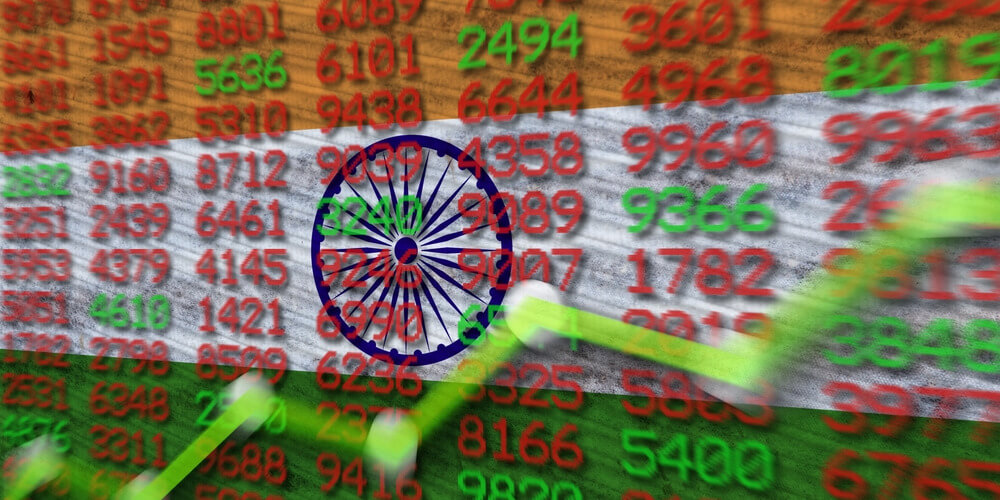Indian Muslims see appeal of Sharia-compliant stocks on the local bourse
Muslims are changing their perspectives on halal and haram stocks following online education courses.
Mumbai: The Muslim participation in India's share market had been negligible with the majority of the population’s 180 million Muslims being averse to investing in the financial markets because of the interest involved.
Islam forbids the community from making income from interest. Charging interest on loans is prohibited as it is not considered an equitable form of transaction.
However, various Muslim financial experts and traders are now tapping into this previously untouched market and not only encouraging Muslims to invest in Sharia-compliant stocks, but also guiding them on the intricacies of the share market.
Experts believe Muslims have stayed away from the market because they felt the money earned was not halal (permissible). However, these traders are changing perception around what is allowed and forbidden when dealing in shares.
“We have been running an awareness campaign consistently for the last two years every Sunday for Muslims online. We tell them the stock market is not completely haram. You can work within the limits of Sharia and that is a wonderful thing. There is no better job than the stock market if it works under the purview of Shariat,” said Focus Securities and Capital Market director Firoz Aga.
Aga has more than 30 years’ experience in the financial sector and began trading sessions for Muslims during the COVID-19 period. The company also runs a 15-day course that teaches potential investors about the nuances of the share market as well as different batches for youth, women and ulemas (Muslim scholars).
During the course, ulemas also take sessions to educate people about the available Sharia-compliant investment options. He says it is always easier for Muslims in India to understand when a religious leader tells them about its intricacies.
Aga has taught nearly 4,500 people through different batches and feels Indian Muslims are avoiding markets that could provide them financial stability.
“We also want ulemas to come forward and invest after properly studying the market. Even if they invest a small amount regularly, after 15-20 years they can receive a handsome return,” he added.
Idafa Investments CEO Ashraf Mohamedy has been active in this field since 1993, offering Sharia-compliant wealth management services. He says the company has been trying to bring Muslims into the share market, but during the lockdown, noticed a marked increase in the number of people willing to take the plunge.
“They realised they were sitting at home and needed to do something. The option they had was to invest in the stock market. The number of investors increased during that period and also the quantum of investments," he said.
Mohamedy believes people from other religions have far more options as they can invest in crypto currencies, futures, short trading and interest-based investments, while Muslim options are limited. Consequently, investment in the Tata Ethical Fund, an equity fund investing in a diversified equity portfolio based on Sharia principles, has increased significantly.
The fund aims to invest in Sharia-compliant equity and equity-related instruments of well-researched value and growth-oriented companies.
Experts also believe that while the number of Muslims trading in the share market has increased considerably, it remains miniscule relative to the community’s population in India. The country is 14.2% Muslim in a 1.4 billion-strong population.
Mohamedy said it was specifically information technology (IT) professionals and businessmen coming forward to invest in the share market, but that ulemas and Muslim scholars were also making their presence felt.
“It will percolate through scholars down into society in a big way,” he added, as experts confirmed they are organising online sessions and using social media to actively support people.
One expert said he had organised almost 32 batches for Muslims to teach them about the share market.
Earlier statistics showed less than 3% of India's population had dematerialisation (demat) accounts in the stock market. Since the lockdown, this figure has risen to 7%, but there are no specific figures available for Muslims demat account holders.
A demat account is an account to hold financial securities in electronic form. In India demat accounts are maintained by two depository organisations – the National Securities Depository Ltd and the Central Depository Services Ltd.
Mufti Mohammad Junaid Khan is a resident of Hingoli in the western Indian state of Maharashtra. He entered the stock market during the COVID-19 lockdown after taking the online course.
“I did not know about it earlier. Muslims can invest properly only in about 10% of shares, but this is a good option to earn the money honestly. Being a mufti, we had an understanding of the issues of Muslims, but did not know how to invest in the stock market,” he said.
Mufti Junaid benefitted from his investments, adding about 40 people – about half of whom are ulemas – who have also earned profits from investments. He recognises Muslims can invest in a halal way, effectively taking care of what is legitimate and illegitimate, and can then support their families with halal money.
According to him, only two qualities are needed for success – patience and discipline.
© SalaamGateway.com 2022. All Rights Reserved

Shuriah Niazi